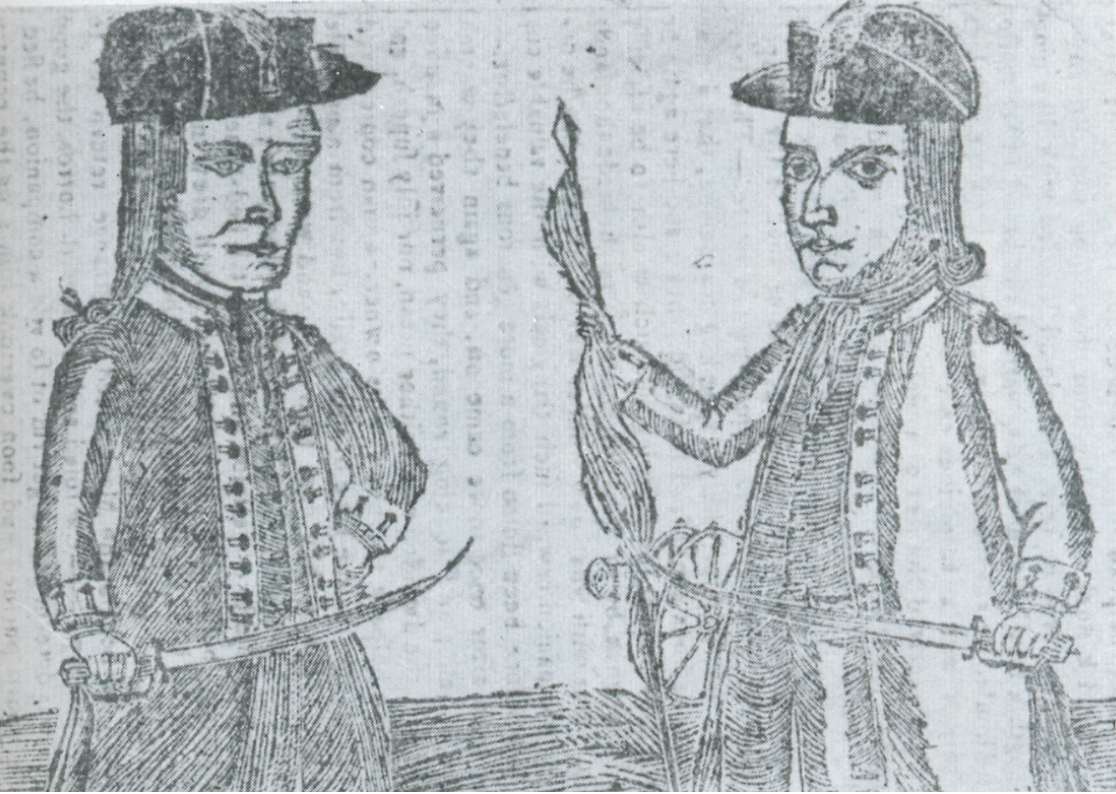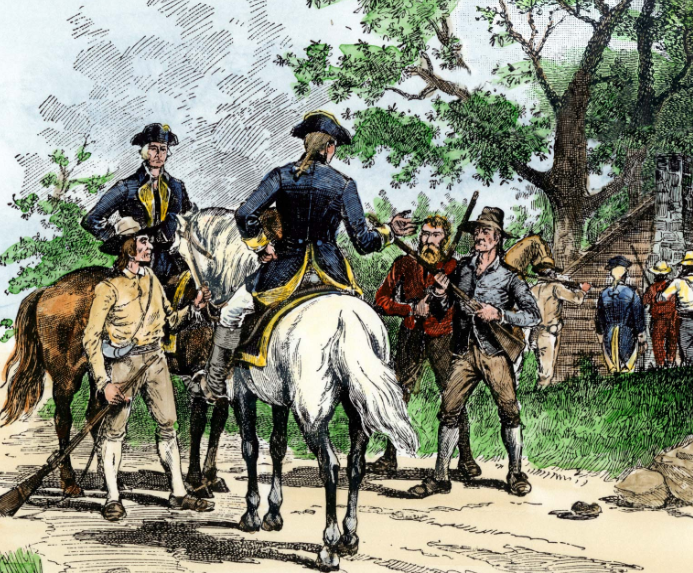Joseph French Instigates the Paper Money Riot
Joseph French was the leader of New Hampshire’s Paper Money Riot.
French was a very difficult Founder to find any information on, and therefore, this article is more about the Riot itself than his life. The Paper Money Riot was similar to Shays’ Rebellion as it was a bunch of Revolutionary War Veterans who could not pay their taxes in the economic depression which followed the Revolutionary War.
That being said, I visited Exeter last year and could picture the events in my head as I read about them so I really wanted to write this article anyway. Enjoy!
Short on Cash
All students of the American Revolution are familiar with Shays’ Rebellion, but less well known is the Paper Money Riot. Also known as the Exeter Rebellion, this riot took place in New Hampshire at the same time as Shays’ Rebellion and for many of the same reasons.
In short, the close of the Revolutionary War led to a severe economic depression throughout the United States. Most of the gold and silver had been sent overseas in an attempt to maintain trade with other nations. This left little money circulating and as a result most yeoman farmers could not sell their produce. Unable to pay their taxes, hundred of people had their properties foreclosed on.
It just so happens that many of these farmers who were losing their homes (through no fault of their own) were veterans of the Continental Army. The sentiment of ‘is this really what we fought for?’ became common throughout the nation.
The people of several towns held conventions which sent petitions to the capital asking for the State to print paper money. The Assemblymen simply ignored these requests.
Joseph French
This is when Joseph French of Hampsted, New Hampshire began to speak up. He organized a group of 200 men and marched to the State Capitol at Exeter.
The men surrounded the Court House and demanded the Legislature start printing paper money in an effort to save the people. That’s when Governor House John Sullivan stepped out of the building.
John Sullivan, a hero of the Revolution who was respected by every soldier present, managed to convince the men to back down and set up camp a mile outside of town.
They agreed and, after they left, Sullivan sent out a call for the State Militia.
A Quick End
When the sun came up, the State Militia arrived at the rebel’s camp. The men were surprised and scattered into the woods, though most of the leaders were apprehended.
Joseph French surrendered immediately.
He was brought to trial that day and, like the rest of the rebels, pardoned.
In all, French’s excursion against the State of New Hampshire lasted less than a day. However, it did have lingering effects on both the State and the Nation.
Aftermath
While printing paper money would not have solved the problem (in fact, inflation may have made the issues worse) it seemed to be the only answer for these poor veterans.
Instead of fixing any problem, New Hampshire soon made it illegal to hold conventions to protest the government as well as giving the Governor the ability to call in the Militia to suppress rebellion.
On the National stage, the Paper Money Riot (along with Shays’ Rebellion) became one of the impetuses for the US Constitution. The Constitution was able to suppress rebellions of this nature as well as reign in the economy and prevent severe depressions of this nature.
Want to read about other Founders who helped pay for the Revolution?
You should try one of my other articles:
Gouverneur Morris - The One-Legged Ladies’ Man and ‘We The People’
Robert Morris - The Founding Father We’re Supposed to Know
William Hemsley Flips on Coinage
John Kean Accounts for the United States
Want to get fun American Revolution articles straight to your inbox every morning?
Subscribe to my email list here.
You can also support this site on Patreon by clicking here.
Exeter is a beautiful small city in New Hampshire, with a rich history.
Not only does it have Revolutionary History, but it has the American Independence Museum, which has certain artifacts I recommend anyone attempt to see. If you’d like to learn more about this place, you should definitely read ‘Exeter: Historically Speaking.’
If you’d like a copy you can pick one up through the link below (you’ll support this site, but don’t worry, Amazon pays me while your price stays the same).






